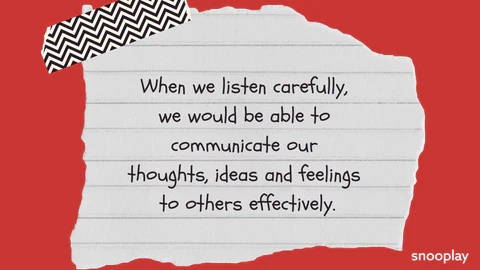Listening skills are vital for the growth and development of children. They lay the foundation for effective communication, understanding, and learning. Through listening, kids learn to interpret the world around them, build vocabulary, and develop social skills. However, nurturing these skills in young learners requires engaging methods that capture their attention and interest. This is where listening activities for kids come into play.
Math & ELA | PreK To Grade 5
Kids see fun.
You see real learning outcomes.
Watch your kids fall in love with math & reading through our scientifically designed curriculum.
Parents, try for free Teachers, use for free
In this blog, we will explore a variety of listening activities suited for children. Through these activities, we aim to provide practical tools that can be easily integrated into daily routines, classrooms, and playtime, making the development of listening skills an enjoyable journey for children.
1. Online Games with Fun Sounds
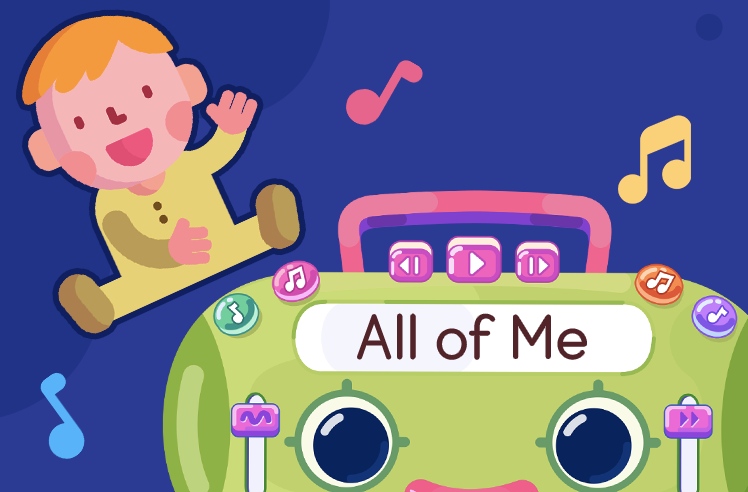
Including online games with fun sounds can be a highly engaging addition to listening activities for kids. These digital activities are designed to captivate children’s attention with interactive sound effects, music, and voice instructions. Children can play games that involve matching sounds to pictures, identifying patterns in music, or following auditory instructions to complete tasks.
Begin with these fun music activities:
2. Storytime Sessions
Storytime Sessions are a classic yet powerful way to build effective listening skills in children. This method transforms storytime into effective listening skills activities, making learning interactive and reflective.
How to do it:
- Choose a book suitable for the children’s age and interests.
- Read aloud, using different voices for various characters to keep the session engaging.
- Pause occasionally to ask questions related to the plot, characters, and morals of the story. Questions like “Why do you think the character did that?” or “What would you have done in their place?”
- At the end, engage the children in a discussion about the story’s morals and characters.
- Encourage children to express their thoughts and predictions throughout the session.
Related Reading: Amazing Short Stories for Kids
3. Follow the Leader
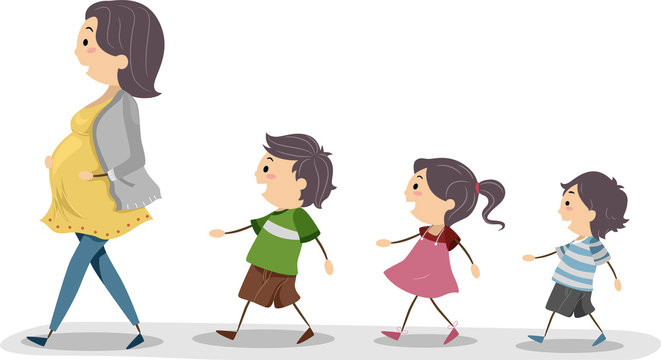
Follow the leader is an interactive game that challenges children to listen closely and follow a series of instructions. This introduces a playful twist to ensure that children listen attentively to each direction.
How to do it:
- Designate a leader who will give out commands.
- The leader performs actions with an accompanying command starting with “Leader says.”
- Participants must follow the command only if it starts with “Leader says.”
- Introduce commands that require listening and quick response.
- Make the game more challenging by increasing the speed or complexity of commands.
4. Simon Says
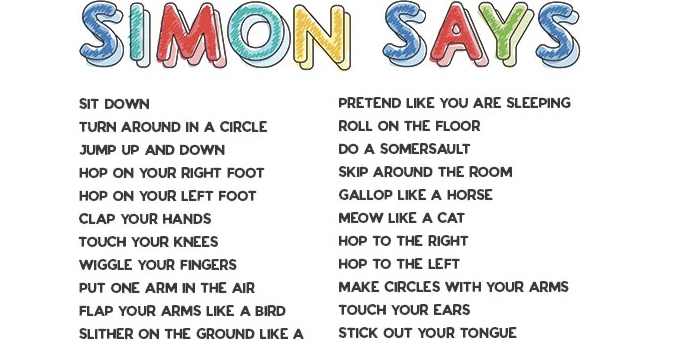
Simon Says is one of the best group listening activities. This game emphasizes the importance of selective attention, requiring players to focus closely on the instructions and distinguish between when to act and when to stay still.
How to do it:
- One person is ‘Simon’ and stands in front of the group.
- Simon issues commands beginning with “Simon says.”
- Players follow the commands only if preceded by “Simon says.”
- If Simon gives a command without the phrase, and someone follows it, they’re out.
- Continue the game, increasing the difficulty of commands for remaining players.
5. Telephone Game
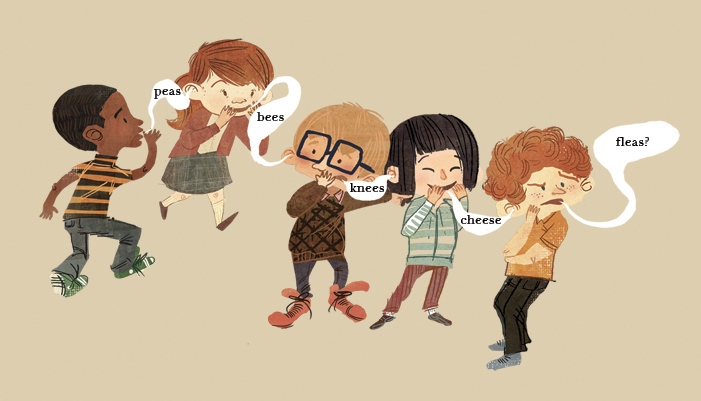
The Telephone game is a classic listening activity for elementary students that illustrates how easily information can become distorted through verbal communication. This game opens up discussions about the importance of clear communication and careful listening.
How to do it:
- Arrange the children in a line or circle.
- Whisper a message to the first child in the line.
- Each child whispers the message to the next until it reaches the last person.
- The last person says the message out loud to compare with the original.
- Discuss how the message changed and the importance of clear communication.
6. Nature Walks
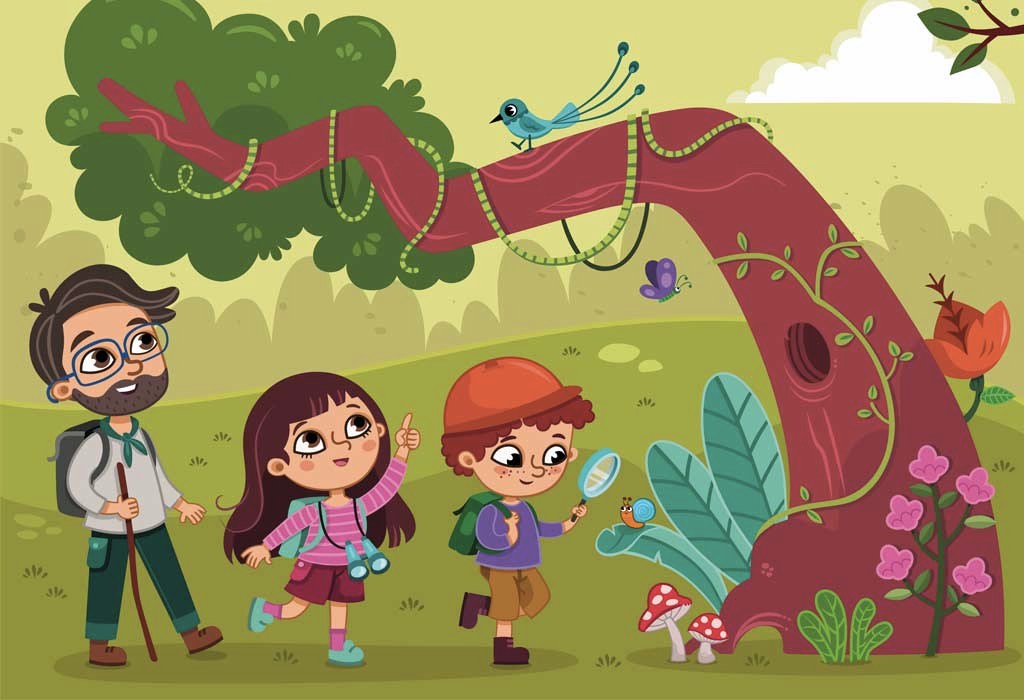
Nature Walks serve as excellent kindergarten listening activities, engaging children with the natural world through the sounds it offers.
How to do it:
- Plan a route that includes a variety of natural sounds.
- Encourage children to quietly listen to the sounds around them during the walk.
- Stop at intervals to discuss the sounds heard and their sources.
- After the walk, have a discussion about why these sounds are important.
- Encourage children to describe their favorite sound and why they liked it.
7. Audio Books and Podcasts
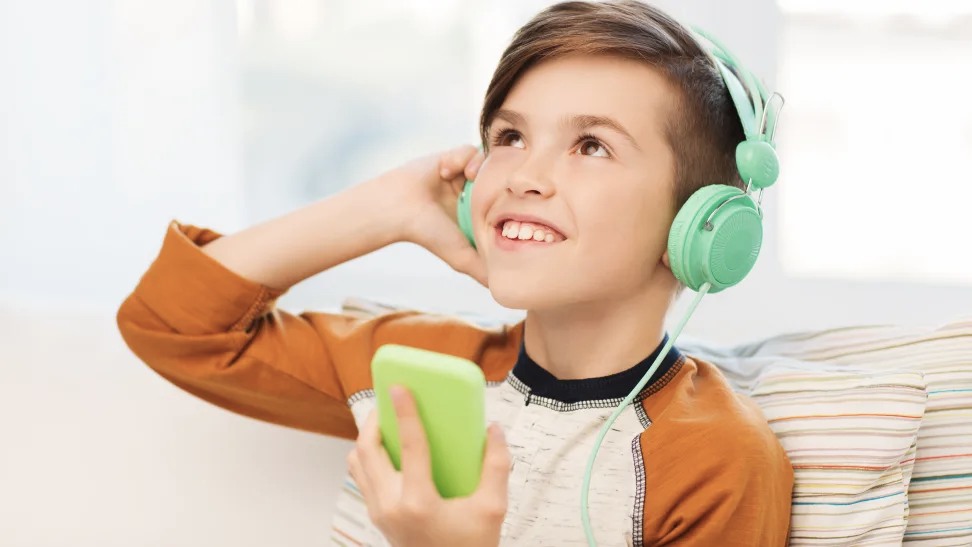
Audio Books and Podcasts serve as excellent listening exercises for kids, offering a range of stories and information through an engaging medium. The role of audio content in developing listening and comprehension skills cannot be overstated. It exposes children to different languages, accents, and topics, enhancing their ability to understand and process spoken information.
How to do it:
- Select age-appropriate audiobooks or podcasts.
- Listen together, encouraging focused attention.
- Discuss the story or information afterward, asking about plot, characters, and lessons.
- Relate the content to the children’s experiences or knowledge.
- Encourage children to ask questions or express opinions about what they heard.
Related Reading: Best Reading Comprehension Activities for Kids
8. Guess the Lyrics

Guess the Lyrics is a fun and interactive way to encourage creative thinking and listening to details. This activity not only makes listening enjoyable but also sharpens their attention to lyrical details and can enhance their memory and language skills.
How to do it:
- Choose a song with child-friendly lyrics.
- Play the song, pausing it at certain points to ask what the next line is.
- Discuss the song’s meaning and themes after playing it.
- Encourage children to express what they felt or thought about the song.
Related Reading: Best Memory Games for Kids to Enhance Cognitive Skills
9. Sound Bingo
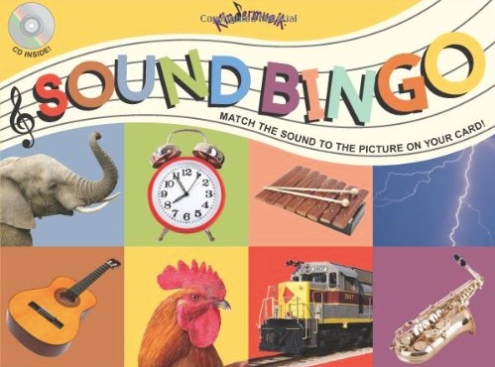
Sound Bingo is a creative activity to improve listening skills, involving bingo cards with pictures of items that make distinct sounds (e.g., an airplane, a dog, a drum). This activity is not only enjoyable but also educational, as it teaches children to associate sounds with their sources.
How to do it:
- Create bingo cards with pictures of sound-producing objects.
- Play sounds corresponding to the pictures on the bingo cards.
- Have children mark the objects on their card they believe made the sound.
- The first child to complete a row wins.
- Discuss the sources of the sounds and their characteristics after the game.
10. Directional Hearing
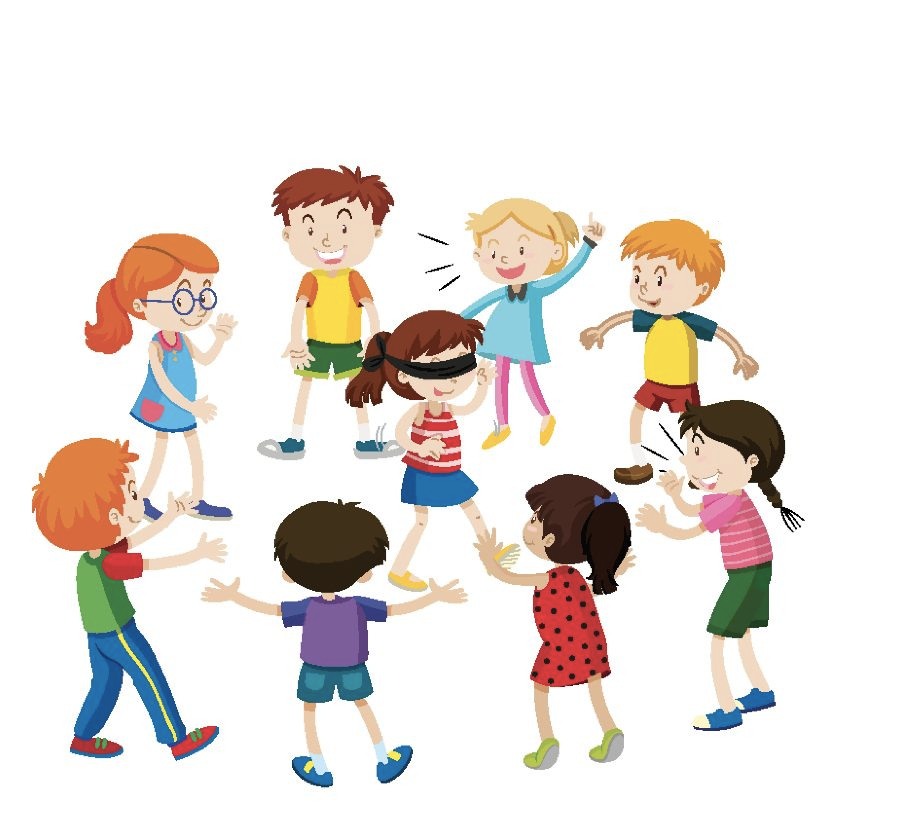
Directional Hearing is one of the most innovative active listening activities for students that focuses on developing spatial awareness and auditory localization skills.
How to do it:
- Blindfold a child or have them close their eyes.
- Make a sound in different parts of the room.
- Ask the child to point or move towards the sound source.
- Use a variety of sounds to test different directions and distances.
- Discuss the experience and the importance of being aware of sound directions.
11. Rhythmic Clapping
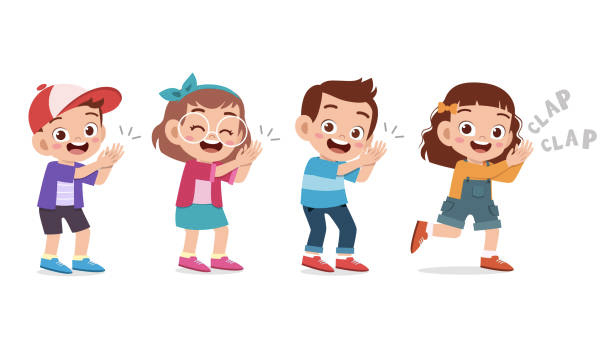
Rhythmic Clapping involves clapping out specific rhythms and having the kids repeat them. This activity not only makes listening fun but also strengthens the connection between listening, understanding rhythms, and motor skills.
How to do it:
- Clap a simple rhythm and ask the children to repeat it.
- Gradually increase the complexity of the rhythms.
- Challenge children to create their own rhythms for others to repeat.
- Discuss how different rhythms can convey different moods or messages.
12. Listening for Details
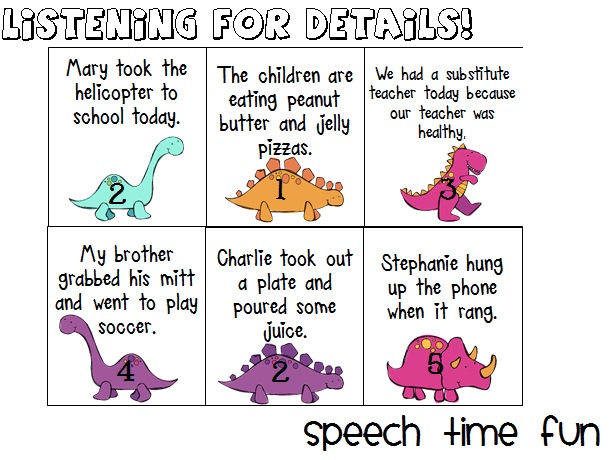
Listening for Details is a fun listening activity for preschoolers and older kids alike, designed to sharpen focus and detail retention. This activity improves attention to detail and memory, encouraging kids to listen actively and retain information, which are crucial skills for academic success.
How to do it:
- Tell a detailed story to the children, including specific and vivid details.
- Ask questions about the story to see who remembers the details.
- Discuss the story’s plot and characters, focusing on the details.
- Encourage children to tell their stories, focusing on adding details.
13. Sound Identification Games
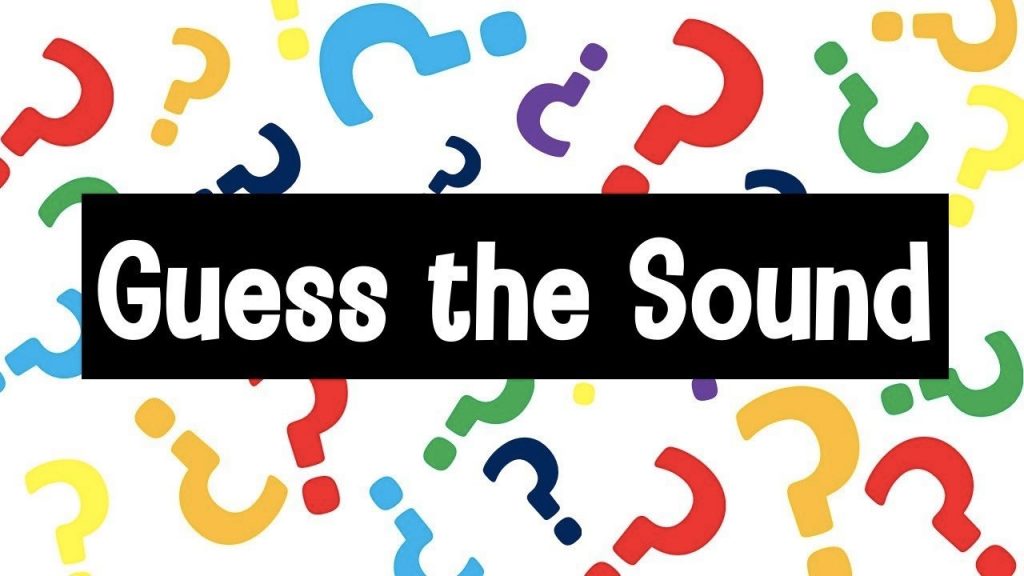
Sound identification games are fun activities for listening skill enhancement that use everyday objects to create sounds for children to identify. This activity is beneficial for auditory discrimination skills, as it teaches children to focus and differentiate between sounds.
How to do it:
- Gather a variety of objects that produce distinct sounds.
- Play the sounds one at a time while children are blindfolded or facing away.
- Ask the children to guess the object making the sound.
- Discuss the characteristics of each sound and its
14. Sound Sorting
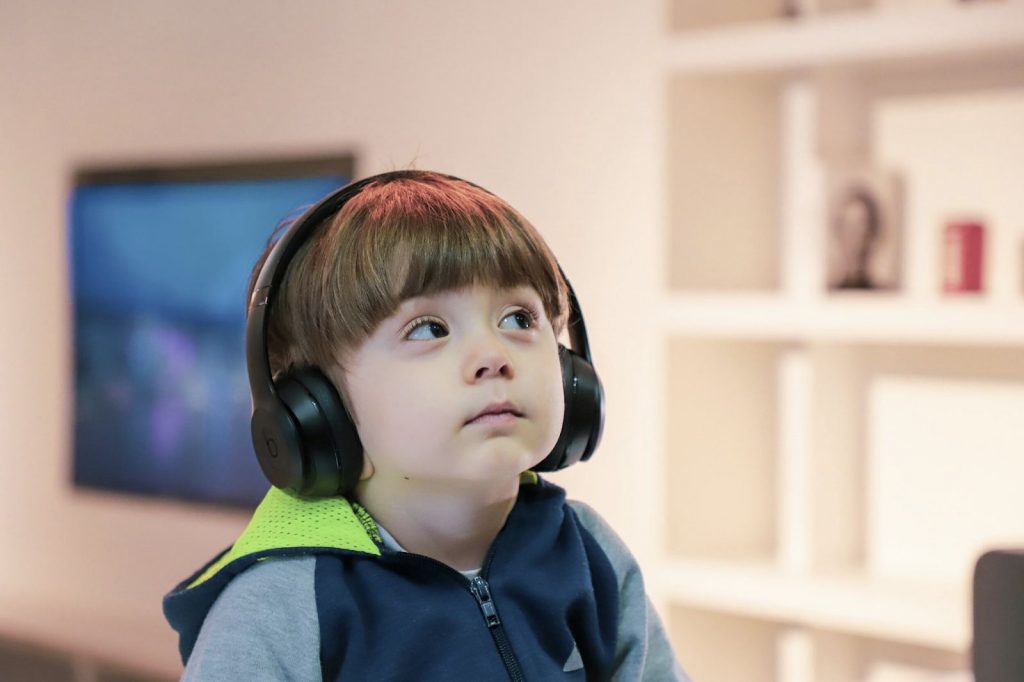
This activity not only makes listening a hands-on, engaging experience but also sharpens their auditory discrimination skills. It’s a fun way to learn about different sound characteristics and their sources, making it a perfect addition to listening activities for kids.
How to do it:
- Play a variety of sounds
- Ask the children to categorize them based on specific criteria, such as man-made versus natural sounds or loud versus soft sounds.
15. Musical Statues
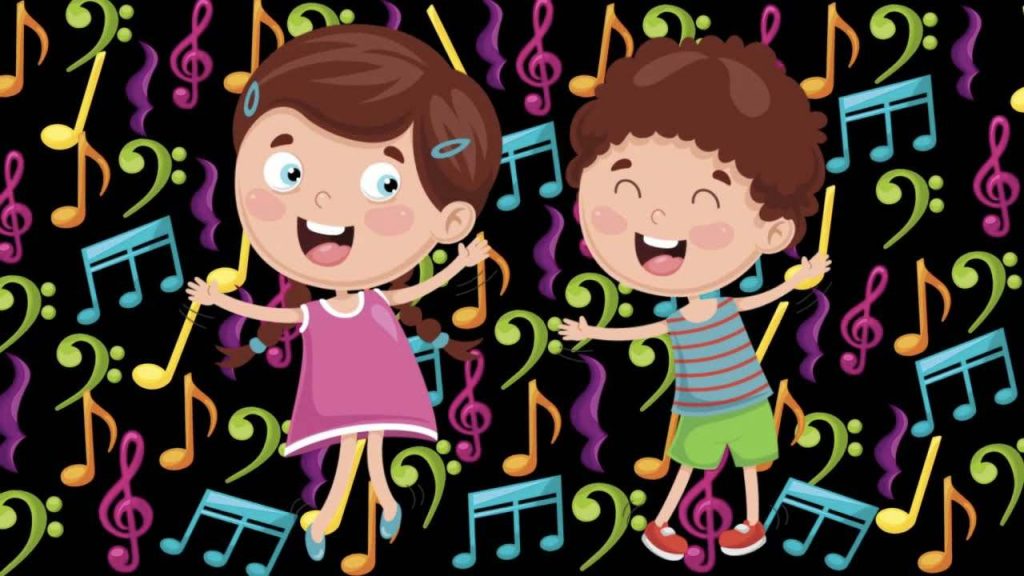
Musical Statues is another enjoyable activity for kids that combines music with movement. This activity requires careful listening for the sudden start and stop of the music, teaching children to respond quickly to auditory cues. It’s a lively way to develop concentration and listening skills, offering a fun break that keeps kids active and attentive.
How to do it:
- Play music and encourage the children to dance freely around the space.
- Suddenly stop the music, signaling the children to freeze in place.
- The last child to freeze is out, continue until one child remains.
Related Reading: Best and Fun Music Games for Kids
Conclusion
Incorporating these listening activities for kids into their daily routine can significantly enhance their listening skills, attention span, and overall cognitive development. By engaging in these fun and educational exercises, children learn to listen more attentively, understand better, and express themselves more clearly.
Related Reading: Best Phonemic Awareness Activities for Kids
Frequently Asked Questions (FAQs)
What are the 5 simple exercises for better listening?
Storytime Sessions, Sound Identification Games, Follow the Leader, Telephone Game, and Rhythmic Clapping.
What games are good for listening skills?
Simon Says, Musical Statues, Sound Bingo, Nature Walks, and Directional Hearing are effective and fun.
How do you teach listening creatively?
Incorporate storytelling with interactive elements, use music and rhythm activities, and engage in games that require attentive listening and response.
What are some good listening activities for classroom?
Story Continuation, Listening for Details, Guess the Lyrics, Audio Books and Podcasts, and Sound Sorting activities foster attentive listening and comprehension.

















